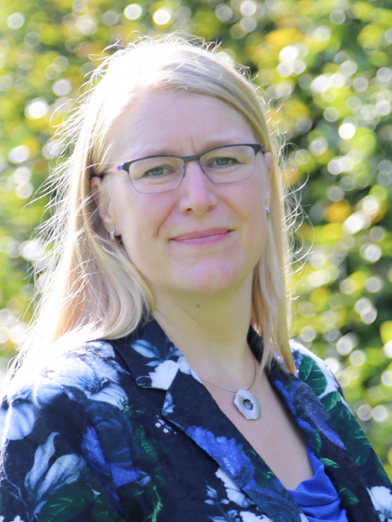Investigation into Psychology professor ongoing: ‘Important that we find the facts’
-
 Het Maria Montessorigebouw. Foto: Dick van Aalst
Het Maria Montessorigebouw. Foto: Dick van Aalst
This past January saw the start of the investigation of the Psychology professor, who for years, bombarded a student with unwanted messages. Additionally, there is a now a plan in place to tackle transgressive behaviour at the Faculty of Social Sciences. What does the faculty board hope to accomplish?
When it comes to transgressive behaviour, the Faculty of Social Sciences has regularly been in the spotlight the last few years. Last year, an employee from Artificial Intelligence left the university after complaints about transgressive behaviour; in September that same year, the radio show Argos revealed that a Psychology professor flooded one of his students with unwanted messages, which drove the student into a burnout.
The professor in question received a formal reprimand, which was added to his personal file as a yellow card. Based on new reports and signals, the faculty board opted to launch a new, external investigation into the man last fall.
Said investigation started in January, the faculty board wrote in a message to all employees. ‘Interviews will take place in the short term’, dean Evelyn Kroesbergen explained to Vox.
Independent party
In the meantime, another case of transgressive behaviour had come to light. A teacher at the same faculty misbehaved at a graduation party towards multiple students. He kissed one student on the mouth against her will and slapped another student’s bottom.
The investigation announced by the faculty will, in principle, focus on the professor. However, both Kroesbergen and Ron Scholte, who replaced Kroesbergen for the past few months as interim dean, assured Vox that the context that allowed the professor’s behaviour to take place will also be investigated. In other words: the entire department will also come under scrutiny.
The investigation was announced back in September. Why did it take so long for it to start?
Evelyn Kroesbergen (EK): ‘Beforehand, you want to make clear which questions the investigation should focus on. That requires some finetuning with the professor, the department, and the executive board; then you start talking to one or several investigators. That takes a lot of time.’
What is the goal of the investigation?
EK: ‘There are several goals, but the most important one is that we find the facts behind the received signals and reports. That is why the investigation will be handled by an independent party; it shouldn’t be based on hearsay. I hope that people will feel comfortable to tell the truth to the investigators, and that it will provide us with the information we need to move forward.’
What bureau is in charge of the investigation?
EK: ‘Berenschot.’
And when will the investigation be finished?
EK: ‘I hope to offer more clarity in two months’ time. That does not mean I will be able to share the results, however. Depending on the outcome, we may need to discuss with people before we make any statements. We have also said that we are open to other signals; if we receive any, that might push the timetable, for example because of a follow-up investigation.’
Is it possible for the professor to be fired?
EK: ‘Yes, if there are sufficient grounds for it, but that is not easy to do at a university. I should mention that this is not a comment on the case in question.’
‘The professor will not be on campus for the foreseeable future’
Were any restrictions imposed on the professor while the investigation lasts?
EK: ‘As we have stated earlier, the professor will not be on campus for the foreseeable future; that is still the case.’
Is he working from home for the university?
EK: ‘I cannot comment.’
And what about the assistant professor that Vox reported on today? Will anything be done?
EK: ‘Not at the moment. There was no established pattern in that case. We feel that the case was handled appropriately at the time.’
How has the news impacted the atmosphere at the faculty over the past few months?
EK: ‘It appears that the news generally has had little impact on the students; of course, that is an entirely different matter for those students who were involved personally. The same is true for the employees: the issues get bigger the closer you work with someone.’
New Plan
The Faculty of Social Sciences started working on a new programme for social safety in early 2023. This resulted in a plan that was published last month. One of the focal points of the fourteen-page document is the appointment of a new advisor, who will be answering questions on social safety by management and departments. Additionally, there will be an entire week dedicated to social safety in the first half of 2024, and HR employees will be receiving additional training.
‘We did not have a whole slew of problems, but we can always do better when it comes to social safety’, Kroesbergen explains. ‘The first reports of risks in the academic world came out a few years ago. That calls for a change in culture; this plan is intended to contribute to that change.’
Did the reporting as a result of the Argos broadcast about the professor have any impact on the plan?
Former interim dean Ron Scholte (RS): ‘I think it made everyone realise that social safety is an issue. In all of society, in fact; just look at The Voice of Holland or Matthijs van Nieuwkerk. For example, if I were to yell at a PhD candidate, that is something I will have to resolve as manager – or hope that a bystander comments on it, even with the difficulties of a hierarchical relationship.’
EK: ‘It is in part owing to the reporting that we became aware of how many barriers there are in the way of reporting transgressive behaviour.’
How can you get rid of those barriers?
EK: ‘In an ideal world, there is no transgressive behaviour, and nothing needs reporting. With that being said: you still need a system in case things go wrong. The main factors are its accessibility and the availability of information, so that everyone knows what a report is and how to make one. But we are not there yet.’
E-learnings and bystander training for employees are a part of your plan. Are those mandatory?
RS: ‘You could turn that question on its head: are they still effective when they’re mandatory? Employees have certain responsibilities, and some duties are a part of that. I did the training myself and I retained a lot.’
‘There used to be a pattern of transgressive behaviour where people looked away; I hope we have moved past that’
EK: ‘I will talk to managers who did not follow the training. We are doing our best to make sure everyone attends.’
Do you think the new plan would have prevented the two cases at the Psychology department?
RS: ‘You should compare it to anti-bullying campaigns at schools. They have received a lot of funding, and they do work, but you can never completely prevent bullying. When someone inevitably crosses the line, that needs to be addressed. We hope these programmes can help in that regard.’
EK: ‘There used to be a pattern of transgressive behaviour where people looked away; I hope we have moved past that. In recent times, several minor incidents have come to my attention, which were handled and nipped in the bud.’
Now that there is a plan, do you think it will be effective?
EK: ‘We have a whole team dedicated to the programme, and we have hired additional employees, such as a social safety advisor and a wellbeing officer. We’re hard at work.’
Translated by Jasper Pesch





